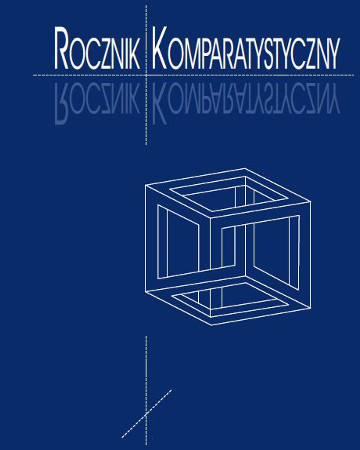





| Authors: |
Roman
Dziergwa
Uniwersytet im. Adama Mickiewicza |
| Keywords: | comparative literature Polish and German contemporary prose Upper Silesia borderline in literature |
| Data publikacji całości: | 2015 |
| Page range: | 6 (457-462) |
| 1. | Ćwiklak, Kornelia. Bliscy nieznajomi. Górnośląskie pogranicze w polskiej i niemieckiej prozie współczesnej. Kraków: Universitas, 2013. |